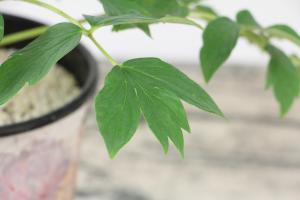Is Aleve Good for Plantar Fasciitis?
Plantar fasciitis is a common foot condition that affects millions of people worldwide. It is caused by the inflammation of the plantar fascia, a ligament that connects the heel bone to the toes. Symptoms of plantar fasciitis include pain and discomfort in the heel or arch of the foot, especially when standing or walking for prolonged periods. While there are several treatment options available for plantar fasciitis, many people wonder if Aleve, a popular over-the-counter pain reliever, can help relieve their symptoms.
What is Aleve?
Aleve is the brand name for the drug naproxen sodium, a nonsteroidal anti-inflammatory drug (NSAID) that is used to relieve pain, inflammation, and fever. It works by inhibiting the production of certain chemicals in the body that cause pain and inflammation. Aleve is available in tablets, caplets, liquid gels, and gel caps, and is commonly used to treat conditions such as headaches, menstrual cramps, and arthritis.
How Does Aleve Work for Plantar Fasciitis?
Aleve can be effective in reducing pain and inflammation associated with plantar fasciitis. When taken as directed, Aleve can help to reduce the inflammation in the plantar fascia, leading to a reduction in pain and discomfort. However, it is important to note that Aleve is not a cure for plantar fasciitis, and should be used in conjunction with other treatments such as stretching exercises, ice therapy, and proper footwear.
Are There Any Risks or Side Effects of Taking Aleve for Plantar Fasciitis?
As with any medication, there are some risks and side effects associated with taking Aleve. The most common side effects of Aleve include upset stomach, heartburn, and nausea. In rare cases, Aleve can lead to more serious side effects such as liver or kidney damage, bleeding, and allergic reactions. It is important to take Aleve as directed and to talk to your doctor if you experience any adverse effects.
When Should You Avoid Taking Aleve for Plantar Fasciitis?
There are some situations where it may not be safe to take Aleve for plantar fasciitis. For example, if you are allergic to other NSAIDs such as aspirin or ibuprofen, you should avoid taking Aleve. Additionally, if you have a history of liver or kidney problems, high blood pressure, or heart disease, you should talk to your doctor before taking Aleve.
Conclusion
Aleve can be an effective tool in the management of plantar fasciitis, providing relief from pain and discomfort associated with the condition. However, it is important to use Aleve as directed and to be aware of any potential risks or side effects. In addition to taking Aleve, it is also important to incorporate other treatments such as stretching, ice therapy, and proper footwear to fully manage the symptoms of plantar fasciitis.

 how many times do yo...
how many times do yo... how many planted tre...
how many planted tre... how many pine trees ...
how many pine trees ... how many pecan trees...
how many pecan trees... how many plants comp...
how many plants comp... how many plants can ...
how many plants can ... how many plants and ...
how many plants and ... how many pepper plan...
how many pepper plan...





























